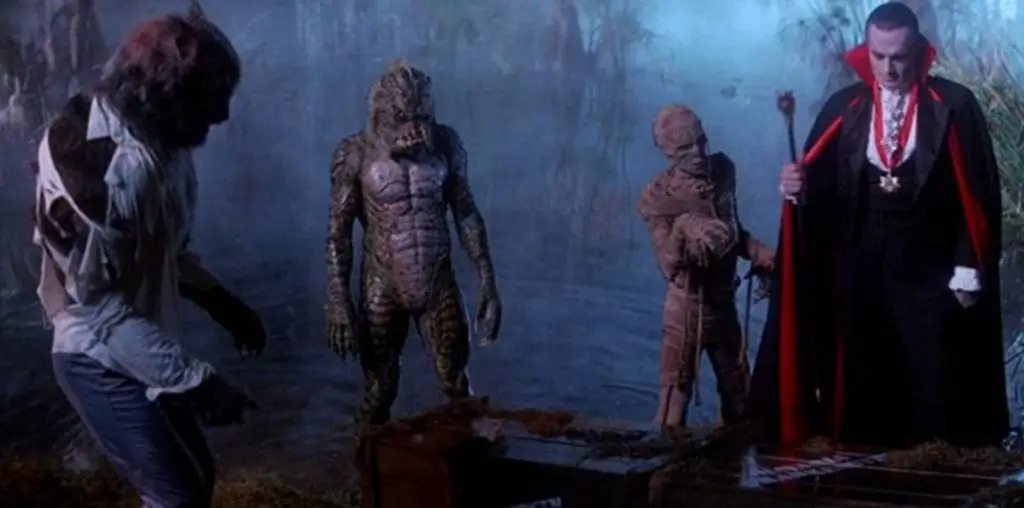
Who is Harvey Pekar? That is the question that most preoccupies “American Splendor,” a docudrama about an American original. Well before there was reality television, there was American Splendor, a comic that detailed the every day life of Harvey Pekar, the anti-superhero and blue-collar file clerk from Cleveland, Ohio. The comic, also written by Pekar, was unique in its attempt to show what was real, to show the ups and down of every day life uncensored and unflattering. The film, directed by documentarians Shari Springer Berman and Robert Pulcini is a biographical adaptation of Harvey’s life in all its monotonous glory. Humorous, impartial, and full of zest, “American Splendor” demonstrates just how ordinary life can be so complicated.
In 1966 Harvey Pekar began working as a file clerk for a local VA hospital in Cleveland. Such work was repetitive and mundane, ideal for an obsessive compulsive, and though it did not offer much beyond minimum wage, it did offer a terrific pension plan. It was there that Harvey would toil away amongst filing cabinets and rows of storage bins for nearly 35 years. And it was there that he would encounter a variety of unique personalities ranging from his paranoid and opinionated boss, Mr. Boats, to his self-assured nerdy co-worker named Toby Radloff. These characters and many others would later find themselves immersed in Harvey’s comic world.
But long before Harvey’s comic career had wings, an abnormality with his voice box and the departure of his second wife send Harvey into a downward spiral. Fortunately, however, things take a positive turn while at a garage sale searching for music. A compulsive collector of vinyl, Harvey stumbles into Robert Crumb, a greeting card illustrator and underground comic artist, who shares his enthusiasm for jazz. The two eventually become friends and Harvey pitches him the idea of creating a comic unlike anything currently being done – a comic based on his life. Crumb agrees to illustrate the stories and slowly the comic evolves into an underground sensation.
Meanwhile, in a comic book store in Delaware, Joyce Brabner goes berserk after realizing the latest issue of “American Splendor” has sold out. Determined to track the issue down, she writes Pekar himself and gradually the two develop a brief long distance relationship, one that quickly has Brabner moving to Cleveland and the two getting married. With a new love in his life, a stage show based on his comic, and numerous appearances on the Late Show with David Letterman, Harvey’s life seemed to be turning around. But upon the discovery of testicular cancer, Harvey is launched even further into the depths of gloom and doom only to be saved and made whole by a little girl named Danielle.
“American Splendor” is a highly innovative and imaginative film for several reasons. Using a combination of film with stock video footage and animation, the story comes to life in fascinating detail. Specifically, it uses a technique of “live action” comic paneling similar to Ang Lee’s The Hulk (but with a smaller budget), where the comic world is integrated into the reality of the film. Comic characters and balloons pop up, real characters walk across the comic book landscape, and pages turn as if you are reading one of Harvey’s stories. It’s also a multi-layered piece of wondrous complexity and reminded me of “Adaptation” in terms of presentation. In Adaptation, the real Charlie Kaufmann wrote the screenplay for the film which has Nicolas Cage portraying Charlie and a fictitious brother and whose lives center on the adaptation of a book by Meryl Streep’s Susan Orlean. In “American Splendor,” Harvey Pekar writes “American Splendor,” appears as himself, as a character in the comic book, and as portrayed by Paul Giamatti.
And speaking of Giamatti, it was absolutely essential to the film to cast the right Harvey. Though Giamatti has always played the bridesmaid in films like “Storytelling” and “Man on the Moon,” ‘Splendor gave him the ability to headline. A perfect choice, Giamatti revels in the role, from the scratchy voice to the slouching walk. More importantly, however, is his ability to capture Harvey’s essence as a human being. Giamatti’s transformation into the grouchy Clevelander was right on the money and visibly obvious when the two shared the same scenes. But he wasn’t the only one who pulled off the great imitation. Hope Davis looks, acts, and talks exactly like the real Joyce Brabner. And Judah Friedlander’s Toby Radloff impersonation left me completely floored – a character that prides himself on being a nerd and speaks in a staggered set of syllables. Overall, when you combine these real life personas with their acting counterparts, you create the equivalent of a DVD extra that makes the story more biographical, rewarding and rich.
Unlike conventional storytelling, where you have definitive moments of a character’s rise and fall and resolution, “American Splendor” is a downward slope that seems to level off in the end. Though it has many moments of sarcasm and humor, the overall tone, like the comics themselves, is a depressing one. Harvey is stuck in a dead end job as a file clerk, he writes comics based on his real life which he cannot escape, he incurs a growth on his vocal chords which affects his speech, his second wife leaves him, he discovers a tumor in an inauspicious place, and his appearances on Late Night with David Letterman are seen as jokes at his own expense. In the end, Pekar enjoys a retirement party befitting a file clerk, video footage of a small gathering with a small cake on paper plates and a few friends. There are no fireworks nor is there an extravagant send off. It’s just plain ordinary and wholesomely bittersweet.
The first issue of “American Splendor” hit the stands in 1976 to modest reviews and it was self-published until the early 1990’s when publication was taken over by the newly formed Dark Horse comics. To this day, the comic stands as a testament to the every man, expanding into a variety of different works from Bedtime Stories to Unsung Heroes, all under the illustrious ‘Splendor’ name. Though much has changed over the last 25 years, for Harvey, much has stayed the same, even in his so-called declining years. Happy retirement, Harvey! And on behalf of those you inspire: “To thine own self be true” (Shakespeare).
Disagree with this review? Think you can write a better one? Go right ahead in Film Threat’s BACK TALK section! Click here>>>

